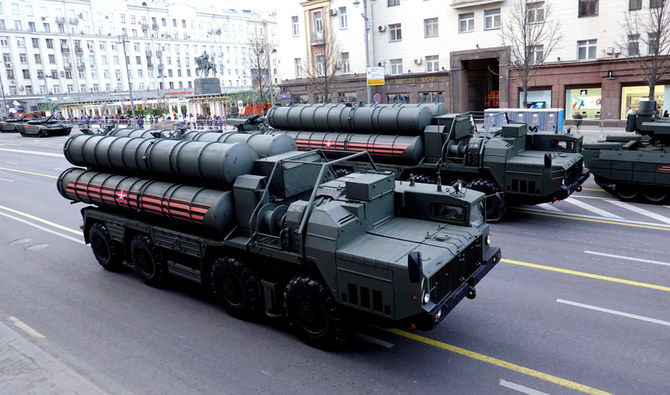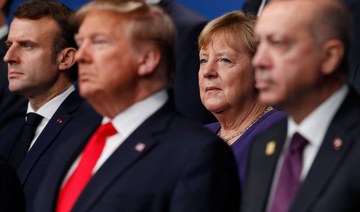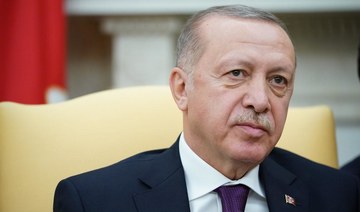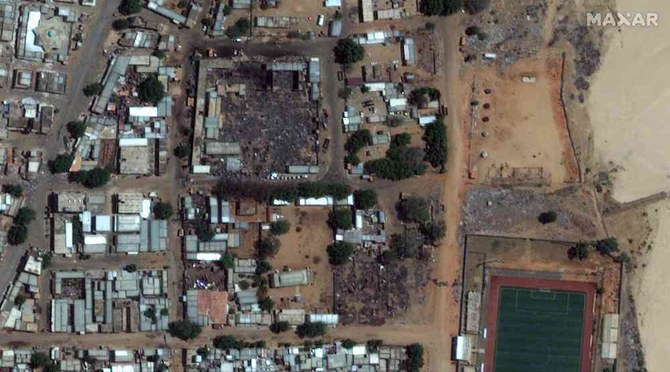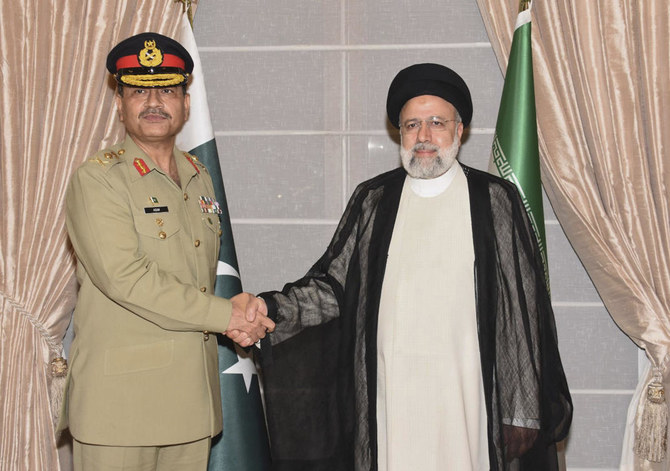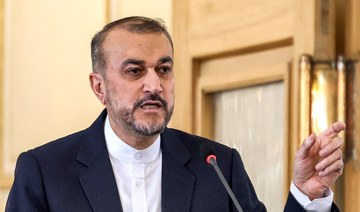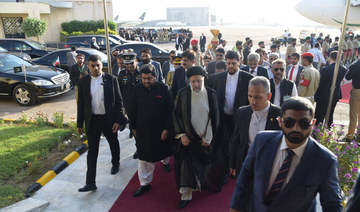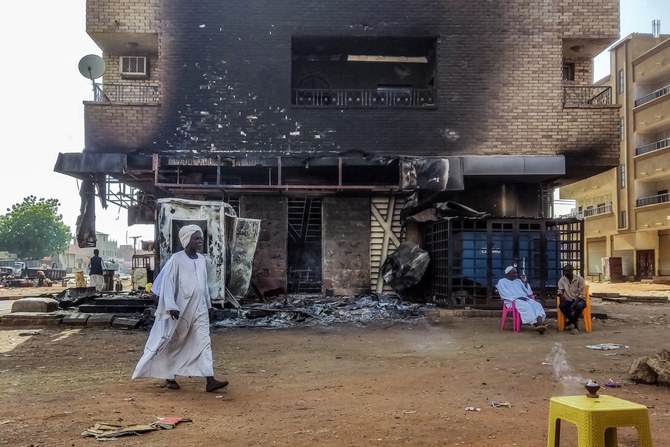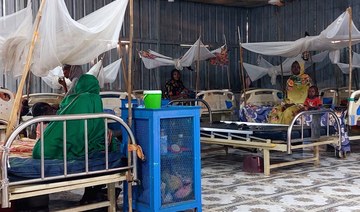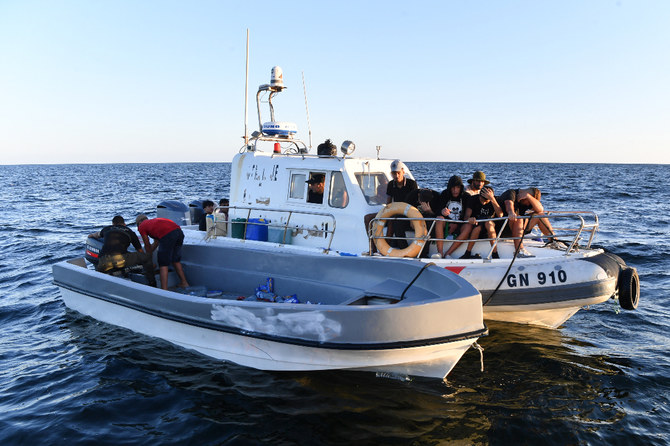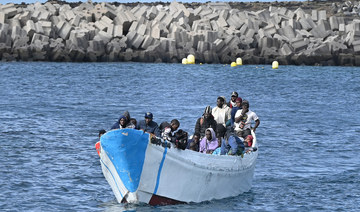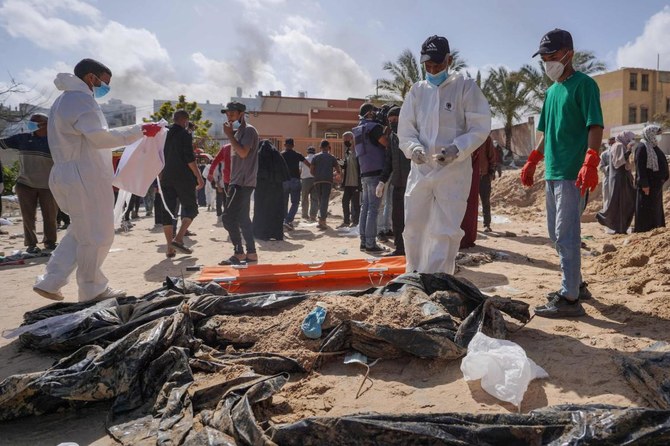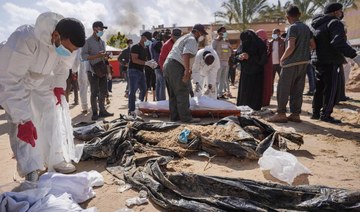ANKARA: The crisis over Turkey’s acquisition of the S-400 air defense system from Russia may come to a head with the threat of US sanctions, according to sources in Ankara.
Despite the close relationship between Turkish President Recep Tayyip Erdogan and his US counterpart Donald Trump, the CAATSA (Countering America’s Adversaries Through Sanctions Act) sanctions package promoted by the US Senate is expected to bring political and financial repercussions for Turkey.
The increasing congressional anger is mainly related to the country’s insistence on purchasing Russian-made weapons and its growing military incursions into Syria targeting Syrian Kurdish YPG militia, longtime partners of the US against Daesh.
Images provided to the media showing Turkey allegedly testing the radar of the missile defense system it bought from Russia accompanied with US-made F-16 fighter jets has been the final straw for the US Senate, which is pressing for immediate sanctions, five months after delivery of the Russian system.
Ali Cinar, a US-based foreign policy expert, expects US sanctions within the coming weeks and said that these will further damage the bilateral relationship.
“The US Senate Foreign Relations Committee has scheduled for next week deliberations on legislation that would penalize Turkey’s S-400 purchase,” he told Arab News.
Last week, US Senators Republican Lindsey Graham and Democratic Chris Van Hollen wrote a letter to Secretary of State Mike Pompeo urging the Trump administration to impose sanctions on Turkey.
“It is time you applied the law. Failure to do so is sending a terrible signal to other countries that they can flout US laws without consequence,” they wrote in the letter.
The committee will elaborate on the bill just a week after the meeting between Trump and Erdogan under the auspices of the NATO leaders’ summit in London. The general feeling in the US is that after several meetings between the US and Turkish leaders, with seemingly no breakthrough on the S-400, Ankara appears not to be changing course.
According to Cinar, if Turkey continues on its path to activate the S-400 system, the US is right to impose sanctions and expel Turkey from the F35 program under CAATSA.
“I think the sanctions would be lighter at the beginning but sending a strong message to Turkey is key for the Senate so sanctions on some officials would be one of the options,” he said.
FASTFACT
Despite the close relationship between Turkish President Recep Tayyip Erdogan and his US counterpart Donald Trump, the sanctions package promoted by the US Senate is expected to bring political and financial repercussions for Turkey.
But Cinar also underlined that the US president has the power to waive the sanctions for 180 days, after which he must submit another waiver for another 180 days, and that the president can do this consecutively.
“The president also has the right to waive one or more sanctions, for instance impose one package of sanctions and waive the rest,” he said.
The law provides the president, who signed it in August 2017, with the opportunity to select from a list of 12 possible sanctions to punish countries taking possession of Russian military hardware. Among these options, preventing access to loans from financial institutions and denying US visas to government officials are considered as hard ones.
CAATSA became US law in July 2017, and sanctions have so far been imposed on Iran, Russia and North Korea. Being a manufacturing and financial partner of the program, Turkey is already disengaged from Lockheed Martin’s colossal F-35 fighter jets program for buying the Russian system, and the last Turkish manufacturer is expected to be removed from the multinational program by March. Ankara has expressed its intention to buy the Kremlin’s Su-35 fighter jets in retaliation.
Beyond harming its ties with Washington, possible sanctions are likely to oblige Turkey to search for alternative markets and supplies for defense equipment.
For Ozgur Unluhisarcikli, Ankara office director of the German Marshall Fund of the US, it was clear that CAATSA sanctions would be imposed on Turkey as a consequence of it making a major weapons acquisition from Russia.
“President Trump tried to defer this decision for as long as possible and it appears that the US Congress is getting impatient and may take matters into its own hands in case Trump does not impose the sanctions soon,” he told Arab News.
Unluhisarcikli added: “While Trump is expected to impose the sanctions before 2020, he will likely formulate a package that will have a minimum impact on the Turkish economy. As the risk-averse foreign investors have already left the Turkish market, citizens are already dollarized, there is shortage of liquidity and the current accounts deficit has decreased as a consequence of stagnation, the impact of the sanctions on the financial markets can be lower than generally anticipated.”
For Unluhisarcikli, the impact on the Turkish economy will be felt in the medium and long term as it will become even less attractive for real investment.
“The sanctions will unavoidably point to a new low in US-Turkey relations and lead to a new wave of anti-Americanism. It will be surprising if President Erdogan does not choose to surf this wave and create a rally around the flag-or-president sentiment,” he said.
This process will have an indirect affect on the fate of millions of refugees currently living in Turkey.
As the Turkish economy deteriorates, Unluhisarcikli predicted, the job market will contract, including for refugees, and some of these refugees may start looking elsewhere to rebuild their lives.



